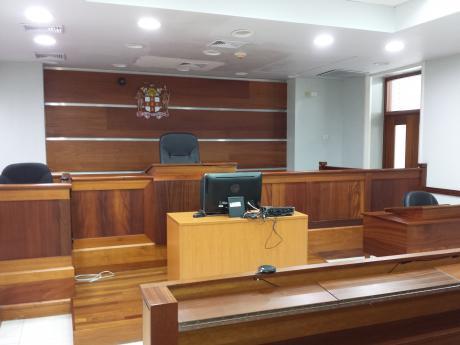Appeal Court rules judge should withdraw from forfeiture case
The Court of Appeal has set aside a decision by Supreme Court Judge Lisa Palmer-Hamilton to hear a claim brought by the Director of Public Prosecutions (DPP).
Palmer Hamilton, who was appointed to the bench in 2017, was a senior deputy DPP in 2015 when the director initiated a forfeiture case against Carol Ann Lawrence-Austin and five other defendants.
Lawrence-Austin argued that because of this, Palmer Hamilton might be biased in hearing the registration of foreign forfeiture orders case in relation to money and several properties in Jamaica.
But Palmer Hamilton disagreed with the suggestion of bias, relying on her professional integrity, her judicial oath taken on her appointment as a puisne judge and the fact that she was a creature of law.
Lawrence-Austin’s attorneys subsequently applied to the judge for permission to appeal her decision not to recuse herself but she refused the application.
An application was then made to the Court of Appeal for permission to appeal and in December 2019, it was granted.
Through attorneys Paul Beswick and Terri-Ann Guyana, Lawrence-Austin argued that sufficient time had not passed since Palmer Hamilton’s departure from the office of the DPP for one to feel there was a separation of interests.
In response, Crown Counsel Patrice Hickson opposed the arguments saying the judge said she sat on matters involving the Office of the DPP since her two years on the bench and there was no previous mention of bias.
Hickson also said there was no evidence that when the judge was a member of the Office of the DPP that the case file came to her attention.
However, the Appeal Court found that the judge had not given the issue of her recusal from the matter due consideration, particularly from the vantage point of the fair-minded informed observer.
The Court of Appeal then ruled that the judge’s decision not to recuse herself should be set aside.
It also ruled that the matter should now be sent back to the Supreme Court to be heard by a different judge.
The claim against Lawrence-Austin and the other defendants stemmed from the conviction of her sister Jean Therese Brown in the United States for various offences including bulk cash smuggling, murder in aid of racketeering and conspiracy to distribute more than 1,000 kilogrammes of marijuana in the US.
In order to render that money untraceable, it is being alleged that Brown’s family and friends bought properties in their names using the said sums.
Following the convictions, the US government issued forfeiture orders in 2010, 2011 and 2016 for money and properties purchased and held in the names of Brown’s relatives and friends.
Lawrence-Austin is contending that although she was the registered owner of four of seven properties which were the subject of the foreign forfeiture orders, they were not criminal properties.
She also denied having a close relationship with her sister.
Follow The Gleaner on Twitter and Instagram @JamaicaGleaner and on Facebook @GleanerJamaica. Send us a message on WhatsApp at 1-876-499-0169 or email us at onlinefeedback@gleanerjm.com or editors@gleanerjm.com.

